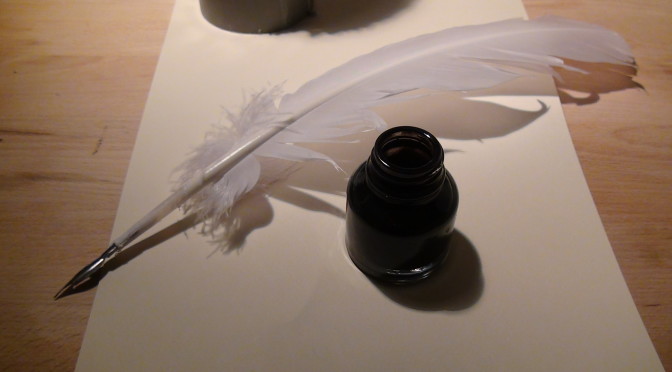From Paper To Screen
May 5, 2016 by admin_name

From Paper To Screen
May 2016 Editorial
https://www.ink2quill.com/
I´m probably going to come back to this theme because there´s so much to be said about this. It´s the kind of topic you can talk about for days and everybody has their own opinion.
So many good books, plays, short stories and even written ideas get taken to the screen for good reasons. It´s not surprising to hear of a great new book that has just come out from its movie ads. This is particularly true with sci-fi gems, such as “Ender´s Game” or “Never Let Me Go”. Other times it´s the retelling of a classic like the case of “Dracula” or “Frankenstein” or “Ulysses” or “Dr. Jekyll And Mr. Hyde” or “Les Miserables” or “The Three Musketeers” and the list goes on.
A sad fact though is that so many transitions from paper to the screen are disappointments or complete failures. Why is it so difficlut to transition from paper to screen? Why is the book almost always better than the movie? One exception of a good book becoming a good movie is “Total Recall” by Piers Anthony and Robert K. Dick but that is the only example I can think of.
One reason for this is that you get such a deeper understanding of the characters and situations when reading because your imagination can fill in for so much. Also, some events are hard to translate to the big screen. Take for example the scene in the book “The Vampire Lestat” by Anne Rice when Lestat is being followed by another vampire who tries to mimic the sound of his footsteps on top of Lestat´s. He knew it was a vampire because it was too well done. The description of that scene is just too brilliant.
In order to overcome this problem the directors and writers would have to stretch out many of the films taken from good literature. This means sequels (which won´t necessarily make Money), larger budgets, smaller profits, less formulaic storylines and most importantly a slower story development or flow. A good example of story flow problems in a film is “Prometheus” released in 2012. That film was chopped up too much and crammed with too much story without explanations to maintain its story flow. As a result people called it a good movie with a flawed storyline. In all honesty, budget constraints aside, it should have been 2 or 3 films to explain all that was going on.
So in short movie-makers have to worry about things like budgets, timing, story flow and talent availibilty, while the demands of creating a good story onscreen from good books are talent, budget, script and the allowance of sequels or a stretched out story that goes beyond the 2 hour limit of people´s concentration span in a theater. That is the genius of the mini series. If the vacuous story telling of soap operas can attract fans then why can´t a story taken from a good book were the producers change less of the story and instead add more of the book in the film? I think it can work.
(Commentary by https://www.ink2quill.com/)
I2Q
Comments
Comments are closed.
